Russia-Ukraine negotiations: Barriers from trust and political conditions
Russian President Vladimir Putin’s initiative for talks and the first Russia-Ukraine dialogue in three years on May 16 in Turkey are being seen by analysts as one of the potential opportunities to end the protracted war. The current situation, with the war deadlocked, the resources of both sides increasingly depleted, and concerns about the possibility of the conflict spreading to the rest of Europe, makes any peace proposal worth serious consideration.
From Moscow’s perspective, a comprehensive peace treaty, rather than a temporary ceasefire, is the only way to ensure lasting peace. While a ceasefire may be a necessary step, Russia argues that without a clear political solution, it will only lead to a “freezing” of the conflict, creating a fragile lull before new rounds of confrontation.
It can be seen that Moscow is shaping its diplomatic strategy within the framework of classical foreign policies, with an emphasis on bilateral or multilateral negotiations based on the principle of recognizing current geopolitical realities. From Russia's perspective, the main obstacles to resuming dialogue include the lack of legitimacy of the Kiev government, as well as skepticism about Ukraine's ability to negotiate effectively in a context of influence from Western powers.
One point that Russia often accuses of is the failure of the West, especially Berlin and Paris, to ensure the implementation of the Minsk Agreements. Moscow argues that it made certain concessions for peace, even though those decisions were not easy domestically. On the other hand, many Western countries believe that Russia did not fully comply with its commitments, leading to the collapse of the negotiation process.
Russia has now reiterated its readiness to negotiate within the framework of the agreements reached in Istanbul in 2022, a roadmap that Moscow says Kiev abandoned under pressure from its Western partners. According to this argument, any new negotiations must take into account “realities on the ground,” that is, changes in the zones of control and power structures after more than three years of conflict. However, the feasibility of this approach remains controversial, as it would require consensus from Ukraine and its Western guarantors, who have maintained that any agreement must respect Ukraine’s sovereignty and territorial integrity.
The Ukraine Problem and the Limits of Europe's Strategic Thinking
Many argue that the Ukraine crisis is revealing deep instabilities in Europe’s political and security architecture, and reflects the confusion of some of the region’s political elites. Some countries still seem to hope for a “return to normalcy” before the war, while continuing to interpret the conflict through the lens of the Russian threat. However, even within the West, and especially within the new US administration, there are skeptics about the current approach and its long-term effectiveness.
From Moscow’s side, the argument is that both Kiev and its Western partners are responsible for the breakdown of the talks in April 2022 – a turning point that pushed the conflict into a phase of escalation. According to this view, if further attempts to restart negotiations fail, any new round of negotiations may no longer be about reaching a balanced agreement, but about terms imposed by the winning side.
Moreover, the strategic and economic costs of the war, not only for Ukraine but also for major European economies, are becoming increasingly apparent. The absence of a credible peace process could become a “burden” for the European Union and NATO themselves, as prolonged sanctions policies weaken supply chains, increase defense spending, and create domestic political pressure.
In addition, there are still many unanswered questions about the real nature of the rearmament policies of European powers such as Germany, France and the UK. On the one hand, they are committed to supporting Ukraine and strengthening deterrence, but on the other hand, internal public opinion is cautious, even skeptical, about the shift in defense policy from “conflict prevention” to “acceptance of long-term confrontation”.
On the US side, there are signs that Washington wants to relaunch a form of security cooperation like the NATO-Russia Council, which has served as a strategic dialogue channel in the past. However, returning to the old model without adjusting to new geopolitical realities may not be enough to ease current tensions. Some observers ask: is the West repeating the same mistakes of investing too much in symbolic security structures while lacking a stable political and social foundation to support them?
Regardless of the scenario in the Russia-Ukraine conflict, Europe is now facing a series of strategic challenges not seen since the Cold War. One of the most notable risks is the lack of clear direction from political leadership, which has led to many decisions being made reactively rather than proactively.
The war in Ukraine has also highlighted the growing divide between elites and ordinary people in Europe. As military spending rises, inflation hits living standards, and the prospect of a “war economy” looms, voters in European countries including France, Germany, and the United Kingdom are expressing clear skepticism about current strategies. The declining popularity of leaders such as Emmanuel Macron, Friedrich Merz, and Keir Starmer suggests that people are increasingly unwilling to sacrifice social stability for geopolitical priorities.
Clearly, the principles that have helped stabilize Europe during the second half of the 20th century, such as distributive justice, security guarantees, and social consensus, are being severely tested by the pressures of rearmament, defense spending, and a crisis of public confidence. The question is: Can European governments develop a sustainable and realistic security strategy without sacrificing social cohesion and the confidence of their own people? Only with concessions and the building of strategic trust from Russia, Ukraine, and the West can a door to peace in Ukraine truly open.
Hung Anh (Contributor)
Source: https://baothanhhoa.vn/hoa-binh-theo-dieu-kien-khi-ban-dam-phan-tro-thanh-chien-truong-ngoai-giao-249110.htm



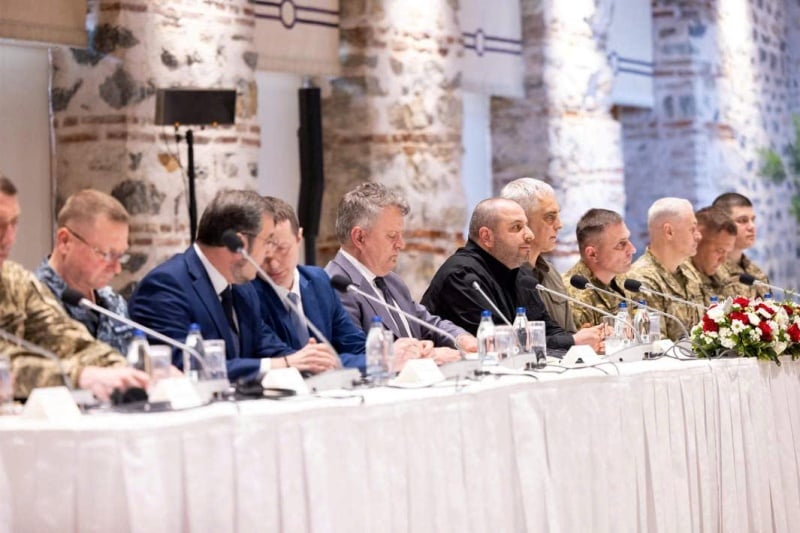

![[Photo] Scientific workshop "Building a socialist model associated with socialist people in Hai Phong city in the period of 2025-2030 and the following years"](https://vphoto.vietnam.vn/thumb/1200x675/vietnam/resource/IMAGE/2025/5/21/5098e06c813243b1bf5670f9dc20ad0a)
![[Photo] Prime Minister Pham Minh Chinh receives Rabbi Yoav Ben Tzur, Israeli Minister of Labor](https://vphoto.vietnam.vn/thumb/1200x675/vietnam/resource/IMAGE/2025/5/21/511bf6664512413ca5a275cbf3fb2f65)
![[Photo] Determining the pairs in the team semi-finals of the National Table Tennis Championship of Nhan Dan Newspaper](https://vphoto.vietnam.vn/thumb/1200x675/vietnam/resource/IMAGE/2025/5/21/eacbf7ae6a59497e9ae5da8e63d227bf)

![[Photo] Prime Minister Pham Minh Chinh attends the groundbreaking ceremony of Trump International Hung Yen Project](https://vphoto.vietnam.vn/thumb/1200x675/vietnam/resource/IMAGE/2025/5/21/ca84b87a74da4cddb2992a86966284cf)







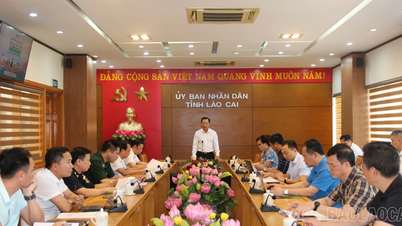










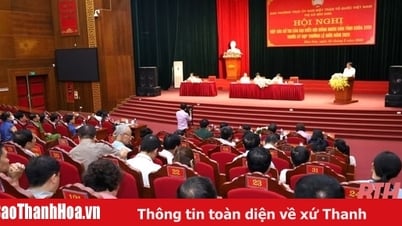
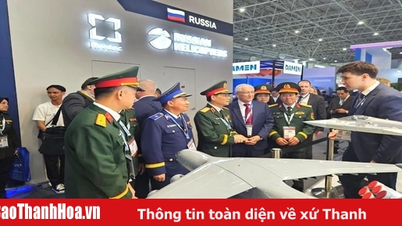





































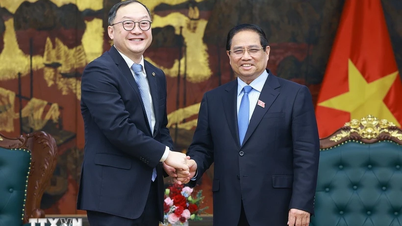
















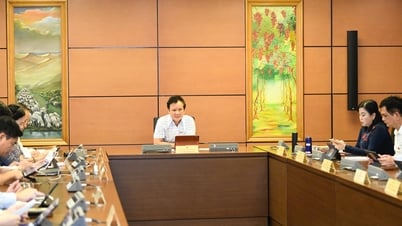















Comment (0)